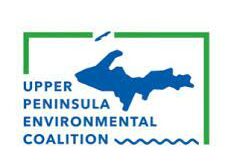 It’s now the third year since White Nose Syndrome first started killing bats in the Upper Peninsula.
It’s now the third year since White Nose Syndrome first started killing bats in the Upper Peninsula.
The hundreds of abandoned mines in the Western U.P. make a terrific habitat for many species of bats, as well as fertile ground for the spread of the disease.
DNR Wildlife Biologist John DePue said, “While the bats are in hibernation in the mines and caves, there are these ideal conditions to grow fungus, which are ideal for bats, too—about 40 degrees and high relative humidity, and the fungus, when it’s attacking the tissues, makes the bats wake up, or arouse, more frequently than they would typically.”
Photos Courtesy Of U.S. Fish and Wildlife Service
Many people have noticed that there are bats already flying around in a desperate search for food.
Many won’t find enough and will die.
The DNR is taking whatever steps they can to protect the bats including working on a treatment they hope will be ready to begin administering by this fall.
In the meantime, they have information available on what to do if you find dead bats and what you can do if you find them living on your property.
DePue said, “If you can, you’ve likely had these bats in your structure for a long time. They probably didn’t just show up this year. If you can tolerate it for a few more months and just do the exclusion work at the end of the summer, that’d be great.”
At the end of the summer season, any pups the bats may have had should be strong enough to survive on their own.
Photos Courtesy Of U.S. Fish and Wildlife Service
Video Courtesy Of National Park Service
 Keweenaw Report Your Source for Local News and Sports
Keweenaw Report Your Source for Local News and Sports






